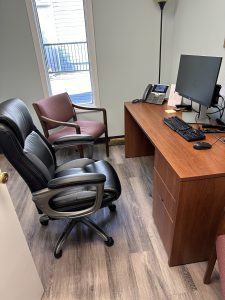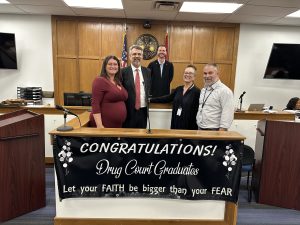Competency 7: Assess with individuals, families, groups, organizations, and communities.
Introduction:
As an advanced social worker, it is important to understand the social environment that I am serving. Understanding different human behaviors helps in learning the different aspects of each community and client. As an advanced social worker, I will apply this knowledge to assess each client in obtaining resources, counseling and other services that meet their needs. I will participate in local work groups within the community to assess any needs and help utilize local organizations to meet these needs.
7A – Formulate comprehensive assessments, using a variety of diagnostic classification systems.
Course Evidence: For SOCW 632 Psychopathology, Clinical Assessment, and Diagnosis I, I wrote a Case History Paper that utilized the DSM-5’s diagnostic criteria to review a pseudo case and create a plan for treatment based on the information provided in the vignette.
Field Evidence: I would complete PHQ9 Questionaire, Geriatric Depression Scale 10-Item (GDS-10), and Psychosocial Assessment on clients. These assessments gave the therapist and treatment team a better understanding of their current symptoms as well as past medical and mental health history.
Additional Field Evidence: Clients can not be taken pictures of due to HIPPA. This will be a picture of me sitting in the office where I meet with clients.

7B – Design and implement organizational and/or community assessments
Course Evidence: In SW 612, our group created a mentorship program for foster children ages 5-12 in the Greater Chattanooga area. We will be utilizing a needs assessment to design and implement the program within a local organization. Here is the link to the assignment. 612 Advanced Admin Program Proposal Section A
Field Evidence: For my two special projects, I created Google tests and evaluations to gather information from staff as well as community members. Please go to the Special Project tab, and click on Pre & Post Test and Evaluations for more information.
Additional Field Evidence: I attended Drug Court graduations for the clients in Parkridge Valley Drug Court IOP program that I worked with in group and individual sessions since February 2024.

In the photo from left to right: ADA Dallas Scott, Judge Andrew Freiburg, Parkridge Valley Therapist Carol Myers, and Parkridge Valley Supervisor Justin Fogette
Skills: Empathy was the skill I utilized most during this competency. Awareness of another person’s situation and concern for the need promoted a desire to help them and alleviate some of the emotional stress these individuals were facing. This skill was demonstrated during my group and individual process sessions at Parkridge Valley.
Knowledge: I utilized educational resources such as DSM-5-TR as well as expertise from licensed social workers to help when completing assessments with patients.
Values: Service, dignity, and a person’s worth were the values demonstrated. Offering resources is an example of services and can be seen during the assessments completed with patients. The person’s dignity and worth have also been observed in the individual and group process sessions as the clients were promoted to address their own needs with support from a social worker.
Cognitive: Application is the shown cognition for this competency as I took the information I learned from my MSW courses and applied them to real-life situations during my practicum.
Affective: Responding and valuing can be seen in this competency. Responding is shown by using the information learned in my courses and applying them in practice. Valuing is also shown by identifying the patient’s beliefs and attitudes toward their worth.
Theoretical foundation:
The theoretical framework I used for this competency is the empowerment theory. The premises of this theory state that a person should be encouraged to take power for themselves and over their situation. According to the Berkeley Well-Being Institute (n.d.), a person is more likely to be successful if they believe they can do something, and the opposite is true. Empowering patients and supporting them had an overall positive effect on them during their time in the IOP program.
The Berkeley Well-Being Institute. (n.d.). Empowerment: Definition, Theory, & Exampleshttps://www.berkeleywellbeing.com/empowerment.html)